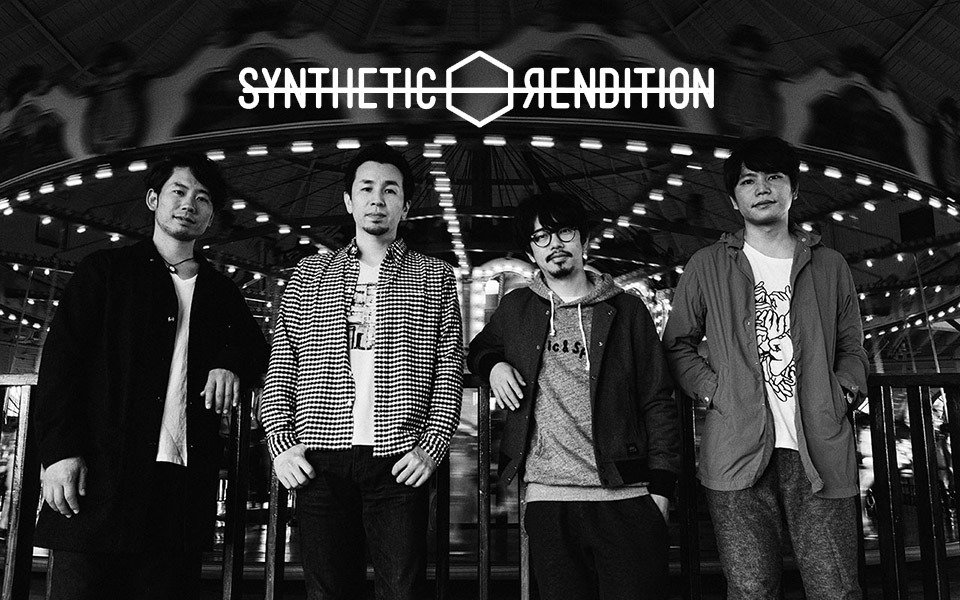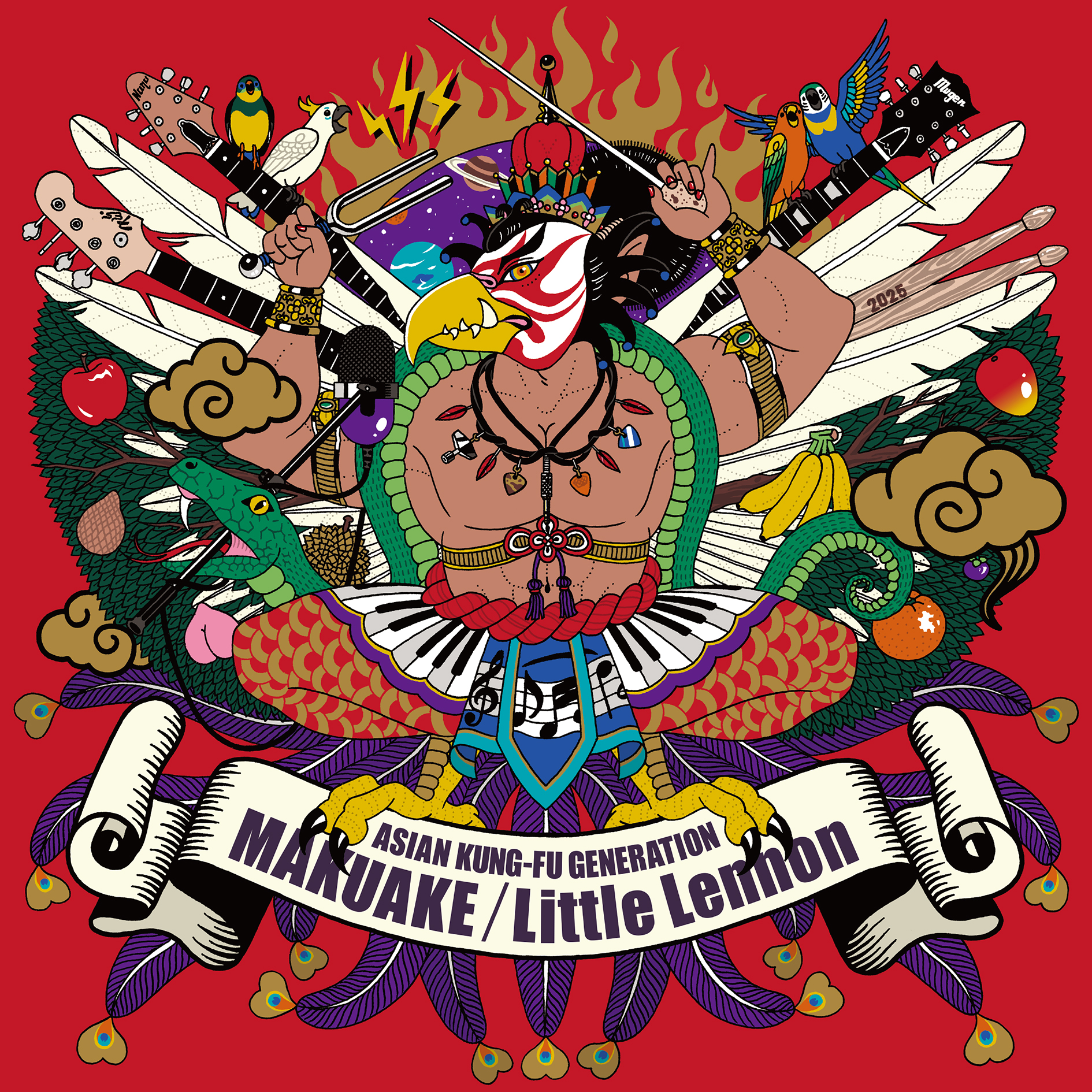Jrock News Interview

This interview was taken by Jrock News on 29 October 2015.
Jrocknews: We were fortunate enough to interview with the talented band, ASIAN KUNG-FU GENERATION who will soon kick off their European tour Wonder Future, starting this November. Thanks to JPU Records for making this possible! During our interview with them, the guys shared some musical advice, and their experience in Europe and also revealed that Asian Kun-Gu Generation would not exist without this certain album. Follow along with our interview and find out!
Could you give us a little backstory to your formation and band name?
Masafumi Gotoh: We first got together as classmates at university. There was a music club/community that people interested in bands and rock music were a part of and we all met there and decided to start a band. The band name came from when I was thinking about a band name, even before I was part of a band. When I started playing music, I was thinking about how I wanted my creations to travel, to not just a Japanese audience, but to all sorts of audiences, all around the world, for everyone to hear. I thought it might make an impression if the band name showed that I was Asian so I came up with the phrase ‘Asian Kung-Fu’. The‘Kung-Fu’ came from my getting into kung-fu movies at the time, and since it was one of the amazing cultures representing Asia I decided, why not borrow some of their power?
You visited London in 2013, and you will be back this November. Is there anywhere else you wish to visit in England?
Masafumi Gotoh: I think I want to go to Stonehenge. I can’t remember the name of the city but I like Kazuo Ishiguro’s ‘Never Let Me Go’, where the characters go to look for a cassette that they lost. I can’t remember the name of it off the top of my head. (It was Cromer, in Norfolk.)
Kensuke Kita: I’ve been to Liverpool but not yet to Manchester so I’d like to go some time. My favourite band is from there.
Masafumi Gotoh: Within the whole of the UK, it’d be great to see Scotland too.
Kensuke Kita: Yes, and Wales too. Manics are from Wales.
In your latest album Wonder Future, which track is your favourite? What’s the meaning behind this song and what inspired you to write this?
Masafumi Gotoh: I like the track ‘Standard’. Political groups with the more liberal policies have continued to lose in the elections of recent years, and I was imagining a kind of scenario where a young girl, a minority as it were, expresses her honest hopes and dreams in a song, and it somehow becomes a standard for the country. Recently there have been some pretty big political demos in Japan, of an unprecedented scale. The demos essentially represent the fact that many people are demanding the proper execution of democracy, and the song sort of overlaps with those events. It felt particularly amazing when Ryuichi Sakamoto, who had been fighting cancer for an extended amount of time, made a speech in front of parliament this summer and it kept reminding me of scenes in the song.
We like the Planet of the Apes music video. What is the concept behind the constant rotation?
Masafumi Gotoh: Maybe it symbolises a kind of chaos or turning something upside-down. I would imagine the rotating and the falling would lead to something like that. The lyrics also depict confusion and chaos so it probably represents that too.
Are there any projects you are currently working on and would like to tell your readers about?
Kensuke Kita: It’s been a while but we’ll be releasing a new single that we wrote as the theme for an Isao Yukisada film called ‘Pink and Gray’ that will be in theatres around New Year’s next year.
At concerts, out of all of your songs, which one do you like to play the most?
Masafumi Gotoh: I’d like to know what the audience wants to hear. I mean, we only get to go abroad once every two years at most. As for South America, for instance, I don’t even know if we can ever come back. Set lists must be perpetually hard decisions for a lot of bands. If we knew there may be opportunities for multiple visits over time, for example with the big-name American and British bands to Japan, we’d love some surprises and a variety in the set lists. If they might never come back, we’d want to hear the ultimate best selection of tracks. I think that’s something we want to consider for our band, too.
You played at the Fuji Rock Festival last year. Are there any festivals outside of Japan that you would like to play?
Masafumi Gotoh: When I was first thinking about names for a band, it did cross my mind that our name would stand out if we were ever at Glastonbury Festival. I wouldn’t be so bold as to ask to play the Pyramid Stage, but it’d be great to play there, even in a tiny tent somewhere. I’m praying that the promoters are reading this somewhere! Glastonbury is the king of rock festivals for our generation, I think, even though there’ve since been a variety of music festivals like Coachella and such. I guess maybe Reading too, the music festivals with history are certainly interesting.
Are there any funny stories you could tell us that happened during tours?
Masafumi Gotoh: We went to look for vinyl LPs in London at a shop called Reckless, and the street that this shop is on appears on the cover of Oasis’ second album. Kita and I took a photo there together. We were truly influenced, head-on, by this album, and I don’t even know if we’d be in a band if it weren’t for Oasis, so it had already been like 15 years since that album was released but it was emotional to be able to visit that special place.
If you could each give budding musicians one piece of advice, what would you like to say?
Masafumi Gotoh: When you’re getting into music, of course, it’s good to practise playing music, but I think it’s really important to see things other than music and feel and internalise that inspiration. I believe that fundamentally, staying aware of your quality of life will allow for better expression of art, so regardless of whether or not your creations make you money, that’s all you need to remember, and that will lead you to new things. The other thing is that things take time, so do not give up after just two or three years, and this is important. I think that going forward, there will be fewer people who can make a living with music. Of course, there will always be the few stars that attract all the money, but it will probably be increasingly difficult for musicians like us, in indie rock, to earn a living in music. So what happens is that it won’t be music to make a living. It’s just about doing what you love, and then finding a way to keep that music going which becomes the focus. So I hope you’ll join us, and if there are people making music now, please tell them that we look forward to the chance to hear your music in Japan.
As a band, I’m sure you have a grand goal, but tell us what do you have planned for 2016?
Masafumi Gotoh: The biggest thing next year will be the band’s 20th anniversary, so maybe one or two live shows to commemorate that. We’re not sure exactly how since it hasn’t been that long since our 10th debut anniversary, and we don’t want to be constantly tooting our own horn with anniversaries all the time, you know?
If you could collaborate with any artist in the music industry, who would you choose and why?
Masafumi Gotoh: Oh if I can just have any pick it would be Sir Paul McCartney. I mean, if I could just say anything. And I’d love to see David Bowie in the flesh, like, ‘Wow, he does exist in real life!!’
You have a huge following outside of Japan. How do you feel about bringing your music to an overseas audience?
Masafumi Gotoh: I wouldn’t say it was my lifelong dream, but it certainly was one of our goals so it makes me happy.
Kensuke Kita: Before we went to Europe – UK/France/Germany – two years ago and saw our audience, it didn’t seem real that there were people there who were listening to our music and liking it… so it was great that we got to do that then. It was truly inspiring, and it made us want to keep working on good music.
Takahiro Yamada: I was under the impression that the kind of Japanese music and culture that was prominent and popular abroad were mostly the very obviously different or ‘kawaii’ things so when we went to play shows two years ago, I couldn’t fully imagine how the audience would react to seeing just us ordinary guys. When we got playing, we could tell that everyone was there for the music. They were singing Japanese lyrics. And singing the guitar riffs too. We were so amazed and touched that our music was so loved.
Kiyoshi Ijichi: I do think that the way that people got to know us initially was certainly anime, like the theme song for ‘Naruto’ and for ‘Fullmetal Alchemist’. When we first went to play live abroad, I expected a gathering of cosplay and anime otaku to greet us, but as Yama-chan also mentioned, it was all people who cared about our music. I don’t think I saw anyone in cosplay. I felt very content that people were listening to our music, and we want to continue releasing our music abroad.
Do you have a message for SR readers?
Kensuke Kita: Hello, Readers of Jrocknews. We’re thrilled that we can come back to Europe again. When we were there two years ago, we were hoping it wouldn’t be the last time and so we tried hard to do a show that you would want us back again for, and it’s great that we’re able to come back. It’ll be our first time in South America, and we’re looking forward to it. I hope we can enjoy the whole experience together. Yamada: We’re touring Japan with the album Wonder Future just before our live dates in Europe and we’ll be warmed up with the tracks from that album, so it would mean a lot to us if you’d check out that album too.
Kiyoshi Ijichi: We’re planning to pack the set list with songs that you want to hear and give it all we’ve got, so look out!

